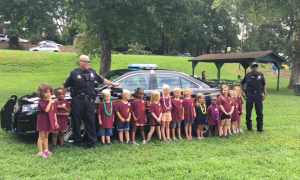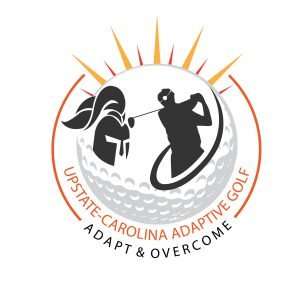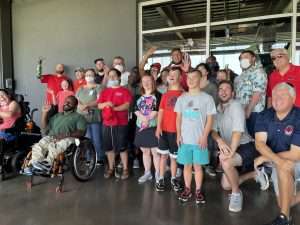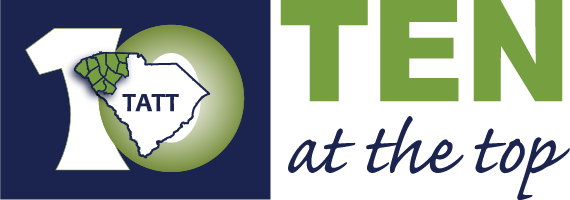
Nov 1, 2021 | Staying on Top, Uncategorized, UpstateVibe365

Scott Carr, Vice President-Commercial Business & Communications, Greenville-Spartanburg Airport District
As we approach the end of 2021, we can look back on a very busy year for the Greenville-Spartanburg International Airport. Despite the economic turmoil generated by the pandemic, your hometown airport has added new air service, further developed our air cargo capabilities, added new amenities, and invested millions of dollars in our facilities to better serve the community.
 On November 17, 2021, Contour Airlines will begin new nonstop service to Nashville, TN. This is the second new airline and the fourth new nonstop destination introduced at GSP in 2021. At the same time, airlines have restored service to all routes that were temporarily suspended due to the pandemic. This brings nonstop service to a total of 22 destinations, the most ever in the airport’s history.
On November 17, 2021, Contour Airlines will begin new nonstop service to Nashville, TN. This is the second new airline and the fourth new nonstop destination introduced at GSP in 2021. At the same time, airlines have restored service to all routes that were temporarily suspended due to the pandemic. This brings nonstop service to a total of 22 destinations, the most ever in the airport’s history.
 To accommodate returning passengers, we have re-opened restaurants and retail stores in the terminal building. The Kitchen by Wolfgang Puck, Chick-fil-A, Dunkin Donuts, Baskin Robbins, Flatwood Grill, Hudson News, the Escape Lounge, and Palmetto Distillery are now open for business. In addition, we have introduced QDOBA Mexican Eats to the Upstate. This new restaurant concept provides another fresh and trendy dining option in our Grand Hall.
To accommodate returning passengers, we have re-opened restaurants and retail stores in the terminal building. The Kitchen by Wolfgang Puck, Chick-fil-A, Dunkin Donuts, Baskin Robbins, Flatwood Grill, Hudson News, the Escape Lounge, and Palmetto Distillery are now open for business. In addition, we have introduced QDOBA Mexican Eats to the Upstate. This new restaurant concept provides another fresh and trendy dining option in our Grand Hall.
 We also recently introduced two Escape Pods on each of our passenger concourses. Escape Pods are private workspaces offering Wi-Fi, video conferencing, and a quiet place for travelers to conduct business. In 2022, we hope to introduce another exciting shopping and dining concept in our Grand Hall. Stay tuned for that upcoming announcement!
We also recently introduced two Escape Pods on each of our passenger concourses. Escape Pods are private workspaces offering Wi-Fi, video conferencing, and a quiet place for travelers to conduct business. In 2022, we hope to introduce another exciting shopping and dining concept in our Grand Hall. Stay tuned for that upcoming announcement!
While passenger numbers have been reduced during the pandemic, we are experiencing a significant increase in cargo activity, particularly to and from international destinations. In 2021, cargo activity at GSP has increased by 56%, setting a record for cargo tonnage at the airport. In fact, GSP now ranks #20 in the U.S. in terms of international freight and accounts for $4.37 billion in trade value. As supply chains continue to be stressed, airlines are finding GSP to be a convenient alternative to other airports in the U.S. We expect this increase in cargo activity to continue well into 2022.
To ensure that the airport remained positioned to serve the region’s needs once air travel demand returned, work has continued on several significant capital improvement projects. In August 2021, we completed work on improvements to the airport entrance road and construction of a new 1,500-space economy parking lot. A project to upgrade roadway directional signage is now underway and should be completed by the end of the year.
In November 2021, we will bring back shuttle service between the terminal and our economy parking lots. This service was suspended when passenger traffic declined in 2020.
In addition, we recently launched a new program to allow travelers to pre-book airport parking on the GSP website. This program provides customers with discounts on parking, rewards points, and is a way to guarantee a parking space in the lot of their choice. Travelers can also earn free parking at GSP after parking with us for just 10 days. More information on pre-booking and rewards can be found at gspairport.com/parking.
 Maintaining a high level of safety, convenience, and efficiency has been and continues to be our priority. Our goal is to always provide a better airport experience for our customers. That is why we were honored to be recognized with the Airports Council International – Airport Health Accreditation. The Airport Health Accreditation is an international recognition earned by airports that demonstrate their commitment to providing the highest level of health, safety, and facility cleanliness to their customers, employees, and business partners. GSP is the first airport in South Carolina to receive this accreditation. This accreditation comes just a few months after GSP was recognized as the “Best Airport in North America” serving 2-5 million passengers annually.
Maintaining a high level of safety, convenience, and efficiency has been and continues to be our priority. Our goal is to always provide a better airport experience for our customers. That is why we were honored to be recognized with the Airports Council International – Airport Health Accreditation. The Airport Health Accreditation is an international recognition earned by airports that demonstrate their commitment to providing the highest level of health, safety, and facility cleanliness to their customers, employees, and business partners. GSP is the first airport in South Carolina to receive this accreditation. This accreditation comes just a few months after GSP was recognized as the “Best Airport in North America” serving 2-5 million passengers annually.
Currently, GSP is handling approximately 80% of the passenger volume generated in 2019. As our journey to recovery continues, we see a very bright future for GSP and Upstate South Carolina travelers. Your hometown airport remains committed to providing the region with a safe, clean, efficient, and modern airport offering quality air service connections to the people and places that matter most to you. Thank you for supporting GSP and we hope to see you on your next flight!

Oct 8, 2021 | Staying on Top, Uncategorized, Upstate Entrepreneur Ecosystem
 Upstate Entrepreneur Ecosystem | Partner Series
Upstate Entrepreneur Ecosystem | Partner Series
Mastering Hard Conversations – How to Talk While Networking: Conversations to Best Explain Your Business
October 7, 2021
Sara Carter, Program Coordinator from CommunityWorks Women’s Business Center, lead the conversation with LeKesa Whitner of Start:Me Spartanburg and entrepreneur Tamika Thompson. LeKesa hears pitches and stories from many business owners, so she has a great perspective on how to stand out. Tamika is the owner of Beyond this February, a Black women owned independent bookstore that prioritizes Black stories year-round. Tamika has been a finalist in the Start:Me and Leap program.
See Tamika’s Facebook page for her pop-up book shops, including this Sunday at the Hub City Farmer’s Market.
Visit StartGrowUpstate.com for resources to start and grow your businesses!
Shared Chat and Contact information:

Aug 26, 2021 | Uncategorized
 Creating a Safer Upstate: Workshop #1 – Use of Force
Creating a Safer Upstate: Workshop #1 – Use of Force
August 25, 2021
Recording of the Workshop
Panelists
- Chief Matt Hamby, City of Greer (Moderator)
- Chief Jim Stewart, Anderson Police Department
- Deputy Chief Jennifer Kindall, Spartanburg Police Department
- Chief Tony Taylor, Williamston Police Department
Welcome – Dean Hybl, Executive Director, Ten at the Top
TATT focuses on creating partnerships and collaborations around issues that impact economic vitality and quality of life in the ten-county region.
Over a year ago, we started conversations with law enforcement officials and residents to work collaboratively to ensure a safer Upstate. A discovery committee of about 50 people came up with recommendations, and under the guidance of Stan Davis, one of the important opportunities identified was to create dialogue to allay misconceptions and share law enforcement practices.
There will be four workshops in this Beyond the Shield series:
- Use of Force
- Technology – body cameras, car tag readers
- Hiring, Recruiting, Retention, and Training
- Neighborhood Safety Concerns
Chief Matt Hamby – Introduction
Why are we here? The aftermath of the George Floyd incident on Memorial Day 2020 shook our nation and created a nationwide conversation about policing.
Why do Law Enforcement Officers (LEOs) use force?
1. Protection of life:
- Protection of the life of a citizen, immediate jeopardy
- Protection of themselves
- This type of force can range from a very low amount of force – all the way up to, in rare instances, deadly force
2. Effect a legal arrest or detainment
- Enforce law
- Effect an arrest for a crime that was committed
- Effect a legal investigatory stop to investigate a crime in progress
Law Enforcement Use of Force is regulated by the 4th Amendment to the U.S. Constitution. The 4th Amendment provides that citizens are protected from unreasonable searches and seizures from the government (law enforcement)
- The 4th Amendment was written somewhat vaguely by the framers of our constitution, but that vagueness was intentional.
- Our Court systems, over time, have provided interpretations of the 4th Amendment as they issue decisions on appeals of court cases.
- Over time, two prevailing court cases have resulted in becoming the guiding principles for law enforcement’s use of force policies.
Tenn v. Garner
- A civil case in which the Supreme Court of the United States held that, under the Fourth Amendment, when a law enforcement officer is pursuing a fleeing suspect, the officer might not use deadly force to prevent escape unless “the officer has probable cause to believe that the suspect poses a significant threat of death or serious physical injury to the officer or others.
Graham v. Connor
- All Uses of Force in arrest and seizures of a citizen are judged by the 4th Amendment’s OBJECTIVE REASONABLENESS standard set by (Graham v Connor opinion in 1989). This OBJECTIVE REASONABLENESS standard analysis consists of:
- The severity of the suspected offense
- Did the suspect pose an immediate threat to the officers or others
- Is the suspect actively resisting or attempting to evade arrest by flight?
These two cases are the “meat and potatoes” of law enforcement policies as it refers to Use of Force.
Law Enforcement Agencies provide guidelines for their officers in the form of Policies and Procedures or General Orders.
These policies are available to the public to view.
The Greer Police Department’s entire General Order Manual is available online at the City of Greer website.
All LEOs are provided additional and continuous training systems at their own agency and by the SCCJA.
Chief Taylor – State Provided/Mandated Training (SCCJA)
- Appointed by Governor McMaster to be part of law enforcement training council
- Guides training for criminal justice academy and deals with certification issues
- In case of termination, when meeting certain criteria (for example, using excessive force, not being truthful in policy violations), officers can’t serve in SC and are entered into a national database
- Now requiring reserve officers in advance class 3 to take psychological testing (reserve officers work for free after passing test at academy)
- Duty to intervene – if an officer is not following proper protocol, it is up to other officer(s) to intervene and report to supervising officer
- Mental health is taken into account
- There is a mobile training team that will go to agencies and go through types of deadly force/critical skills sets.
Chief Stewart – Internal Agency Oversight of UOF
General Orders listed on City of Anderson website under About Us>General Orders
- Response to Resistance (formerly use of force) – changes highlighted in red, added new language, reviewed annually in training, and everyone signs off
- Duty to Intervene – spells out that everyone has the same responsibility as the officer.
- Recently completed defensive tactics training to go over fundamentals; firearms training, day and night qualifications, back-up ankle weapons, rifle, taser, baton, etc.
- Purchased TI training simulator
- Response to Resistance Form must be completed after every case
- All use of force incidents are listed on their website
- Mobile View and Smart Systems Body-Worn Camera (BWC) ability to capture picture for reports, night vision, capture audio
Deputy Chief Jennifer Kindall– Prevention/De-escalation Training
- Response to Resistance – mindset of officers, is key. You are responding to actions of the person you are dealing with
- Personnel must understand what constitutional authority they have in using force and training
- De-escalation is not a replacement for the use of force; it is a mindset that they hope to instill in officers that will aid and reduce the use of force
- Situations determine options available to officers
- We have a responsibility not to escalate situations and to reduce the intensity and slow things down to create an environment where the use of force is not necessary
- De-escalation has been in use for many, many years
- In Spartanburg, from January 1, 2019, to today, officers have responded to 135,665 calls for service. Out of those, 56 incidents of officers using force, which is less than 1%
- Weapon drawn is required data to ensure that officers are within policies
- Important to acknowledge mistakes when identified
- Work to be done on prevention and supplying information to national database.
Community Leader Q & A
- Reverend James C. Clark, Wilson Calvary Baptist Church
- Lamont Sullivan, Assistant Vice President for Advancement and Alumni Engagement at North Greenville University
- Dr. Jacqueline Blakley, Dean Public Services Division, Tri-County Technical College
Question: How is an officer to officer accountability assessed during situations where the use of force is used? For example, there were officers watching George Floyd during the whole time he was asking for help.
- Chief Taylor – Every agency should have a Duty to Intervene policy, confront other officer and intervene when the other office doing something unlawful.
Question: What is the desired outcome of the psychological testing? Does it give you insights to the natural aggression patterns of a potential officer candidate?
- Answer: In SC, every agency, when doing pre-hire background, must go through academy to see status. By law, if a person has been untruthful or has used excessive force, agencies must report misconduct and attend administrative hearing. Now able to fine agency that does not attend hearing.
Question: If senior officer arrives, how do junior officer know when to step aside?
- Answer: Every offer has the duty to intervene, and all personnel have a duty to report. Officers have affirmative duty to care for those in their custody.
Question: Is there a tracking mechanism for officers who profile?
- Answer: Any time officers stop a vehicle, by state law, they must complete a form that has gender, race, age, so it is trackable and commonly available on that agency’s website. Greer’s Public Contact Form is done electronically and available through the Public Safety website, search public contacts.
Question: How often is psychological testing done and what are they looking for?
- Answer: Psychological testing is required for the criminal justice academy. Most have early warning indicators, time out of work, excessive use of force, change in work performance. They may receive employee assistance through personnel. Issues could come from traumatic incidents.
We are looking for a psychological profile that is suitable for law enforcement and part of a comprehensive background investigation to confirm that the individual is a good fit for the profession and organization. SC mandates this as a requirement. It is important to trust the test.
From an academy perspective, evaluation content should cover developmental milestones, coping skills, management of financial responsibilities, freedom from any emotional issues, stress resilience, self-control, impulse control, etc. The list is extensive.
Wrap-Up
More workshops coming in the fall:
- Technology – body cameras, car tag readers
- Hiring, Recruiting, Retention and Training
- Neighborhood Safety Concerns
Dr. Blakley with Tri-County Technical College is working on in-person community and law enforcement engagement events. More information to follow.

Jul 14, 2021 | Community Vibrancy, Staying on Top, Uncategorized, UpstateVibe365
 Written by: Brandon Worley, UCAG Founder/Executive Director
Written by: Brandon Worley, UCAG Founder/Executive Director
 Brandon Worley signed up for the Army after graduating high school in 2010 from Clinton High. Brandon served active duty as an artillery mechanic from July 2010- July 2014. Worley founded Upstate-Carolina Adaptive Golf (UCAG) in October 2018 while working on his Master of Science in Positive Psychology at Life University. Worley was inspired after volunteering for a Georgia State Golf Association adaptive golf program for visually impaired children hosted by David Windsor and now operates UCAG as the Executive Director. Worley has attended 2 national adaptive golf coach workshops hosted by David Windsor and is dedicated to the mission of UCAG to serve individuals with physical and cognitive disabilities and provide opportunities for adaptive golf. UCAG serves veterans, individuals recovering from physical or mental trauma, adults and children with developmental, cognitive, and physical disabilities. Brandon hosted an adaptive golf coach training at Clemson University in April 2019 and UCAG been operating consistent adaptive golf clinics since July 2019. Brandon just recently graduated in Dec 2020 with his Masters in Positive Psychology with a concentration in coaching.
Brandon Worley signed up for the Army after graduating high school in 2010 from Clinton High. Brandon served active duty as an artillery mechanic from July 2010- July 2014. Worley founded Upstate-Carolina Adaptive Golf (UCAG) in October 2018 while working on his Master of Science in Positive Psychology at Life University. Worley was inspired after volunteering for a Georgia State Golf Association adaptive golf program for visually impaired children hosted by David Windsor and now operates UCAG as the Executive Director. Worley has attended 2 national adaptive golf coach workshops hosted by David Windsor and is dedicated to the mission of UCAG to serve individuals with physical and cognitive disabilities and provide opportunities for adaptive golf. UCAG serves veterans, individuals recovering from physical or mental trauma, adults and children with developmental, cognitive, and physical disabilities. Brandon hosted an adaptive golf coach training at Clemson University in April 2019 and UCAG been operating consistent adaptive golf clinics since July 2019. Brandon just recently graduated in Dec 2020 with his Masters in Positive Psychology with a concentration in coaching.

 The mission of Upstate-Carolina Adaptive Golf (UCAG) is to serve individuals with physical and cognitive disabilities and provide opportunities for adaptive golf. UCAG serves veterans, individuals recovering from physical or mental trauma, adults and children with developmental, cognitive, and physical disabilities.
The mission of Upstate-Carolina Adaptive Golf (UCAG) is to serve individuals with physical and cognitive disabilities and provide opportunities for adaptive golf. UCAG serves veterans, individuals recovering from physical or mental trauma, adults and children with developmental, cognitive, and physical disabilities.
UCAG’s programming improves physical & mental health, overall wellness, and access to innovative therapy for adaptive athletes in our community. UCAG believes anyone can discover their abilities (not their disabilities) when given the opportunity, we exist to provide that opportunity for everyone.
 UCAG’s therapeutic approach to adaptive golf coaching establishes a “no-fail” environment for those new to golf and utilizes adaptive equipment to maximize all levels of abilities. Our coaches implement mindfulness-based cognitive strategies to increase confidence, establish independence, and positively impact mental and physical health. The involvement in a community of people overcoming obstacles and pursuing common goals is therapeutic, and the opportunities to socialize and learn together that we provide are paramount. Our clinics provide benchmarks for improvements in physical health, psycho-social status, cognitive status, and recreation activity within the community to measure our impact on length and quality of life in the greater Greenville disabled Veteran and special needs communities. Galvanized by the ability to enhance lives, UCAG passionately pursues continued development and growth of our programming and capability to increase opportunities to make an impact on and provide a community for the participants we serve.
UCAG’s therapeutic approach to adaptive golf coaching establishes a “no-fail” environment for those new to golf and utilizes adaptive equipment to maximize all levels of abilities. Our coaches implement mindfulness-based cognitive strategies to increase confidence, establish independence, and positively impact mental and physical health. The involvement in a community of people overcoming obstacles and pursuing common goals is therapeutic, and the opportunities to socialize and learn together that we provide are paramount. Our clinics provide benchmarks for improvements in physical health, psycho-social status, cognitive status, and recreation activity within the community to measure our impact on length and quality of life in the greater Greenville disabled Veteran and special needs communities. Galvanized by the ability to enhance lives, UCAG passionately pursues continued development and growth of our programming and capability to increase opportunities to make an impact on and provide a community for the participants we serve.
Website: www.ucagnow.org
Youtube channel: https://www.youtube.com/channel/UCl7UDqsyaJqzYyNI8wissSA
Facebook: https://www.facebook.com/upstatecarolinaadaptivegolf
Our monthly Veteran & Community Adaptive Golf Clinics:
Every 3rd Monday of the month at Topgolf 10:00 a.m. – 11:45 a.m.
Every 4th Monday of the month at Shanks driving range 4:15 p.m. – 5:45 p.m.

Jun 15, 2021 | Uncategorized, UpstateVibe365
 A Dynamic Collaboration
A Dynamic Collaboration
Several agencies collaborated to plan and execute The Minority Financial Summit.
The following individuals were instrumental in delivering a webinar that was well-received by attendees:
Brenton Brown, presenter, SC Commission for Minority Affairs
Tammie Greene and Sonja Barkley, presenters, SC Department of Commerce
Natasha Pitts, City of Spartanburg
Jalitha Moore, One Spartanburg
Katrina Meeks, SC SBDC
It is common for small businesses and start-ups to need funding to operate or expand their business. Unfortunately, many of these owners and entrepreneurs do not know where to find financial assistance, nor how to apply for it. A key function of the SC Small Business Development Center (SBDC) is connecting clients with funding options unique to their business needs and helping them apply for these programs. With small businesses floundered in the wake of COVID-19, Spartanburg Area Manager Katrina Meeks decided to take this initiative one step further with the Minority Financial Summit webinar training.The Minority Financial Summit was designed to advance and foster lender relationships and connections, specifically for minority-owned small businesses. The webinar educated attendees on funding options available within the community and discussed the criteria lenders look for when deciding to fund various projects. It also addressed the disparities that minorities often experience when working to secure small business funding.
Meeks developed the curriculum not only for those seeking a business loan or grant, but also for anyone interested in understanding how the SBA supports small businesses or how each of the “4 C’s” (customer, cost, convenience, and communication) factors into the longevity of a business. The event was promoted through the SBDC’s extensive network, as well as through each participating member’s social media account and through each participating agency’s resource partner database.
Over 300 people from throughout the state of South Carolina submitted interest in the webinar, and 127 people attended. The summit featured a lineup of panelists including Community Development Loan Officer Joseph Dukes, Dixon Woodward of United Community Bank, Lee Belcher of Synovus Bank, and Frank Anderson of the U.S. Small Business Administration. The speakers talked about how businesses can strengthen their financial impact, and also provided financial information for entrepreneurs looking to start a new business. The collaboration between speakers from different agencies offered a dynamic variety of perspectives and was applauded by attendees—many of which encouraged the SBDC to host the event again in 2022.
“Your program was excellent,” said Erin Ouzts of Ten at the Top. “The guest speakers were knowledgeable and covered topics relevant to the audience. Thank you for making this happen.”






May 28, 2021 | Staying on Top, Uncategorized
 Robyn Grable, Founder & CEO of Veterans ASCEND/Ability ASCEND
Robyn Grable, Founder & CEO of Veterans ASCEND/Ability ASCEND
Visit the veteransascend.com and abilityascend.org (in production) websites to learn about these hiring models and how they align talent across businesses and organizations matched on skills, location and salary requirements. See the presentation here and watch a recording of the TATT Chat here.
TATT Announcements
See upcoming TATT events here.
Resource Update
Upstate Warrior Solution, Theresa Thompson, Deputy Director
Serves all veterans and opening up services to first responders
Local nonprofit born and raised in the Upstate with all money raised locally including grant funding, corporate donations, event fundraising, and private donations
Partnering with PRISMA (and soon Spartanburg Regional) to identify veterans in need following medical treatment


 On November 17, 2021, Contour Airlines will begin new nonstop service to Nashville, TN. This is the second new airline and the fourth new nonstop destination introduced at GSP in 2021. At the same time, airlines have restored service to all routes that were temporarily suspended due to the pandemic. This brings nonstop service to a total of 22 destinations, the most ever in the airport’s history.
On November 17, 2021, Contour Airlines will begin new nonstop service to Nashville, TN. This is the second new airline and the fourth new nonstop destination introduced at GSP in 2021. At the same time, airlines have restored service to all routes that were temporarily suspended due to the pandemic. This brings nonstop service to a total of 22 destinations, the most ever in the airport’s history. To accommodate returning passengers, we have re-opened restaurants and retail stores in the terminal building. The Kitchen by Wolfgang Puck, Chick-fil-A, Dunkin Donuts, Baskin Robbins, Flatwood Grill, Hudson News, the Escape Lounge, and Palmetto Distillery are now open for business. In addition, we have introduced QDOBA Mexican Eats to the Upstate. This new restaurant concept provides another fresh and trendy dining option in our Grand Hall.
To accommodate returning passengers, we have re-opened restaurants and retail stores in the terminal building. The Kitchen by Wolfgang Puck, Chick-fil-A, Dunkin Donuts, Baskin Robbins, Flatwood Grill, Hudson News, the Escape Lounge, and Palmetto Distillery are now open for business. In addition, we have introduced QDOBA Mexican Eats to the Upstate. This new restaurant concept provides another fresh and trendy dining option in our Grand Hall. We also recently introduced two Escape Pods on each of our passenger concourses. Escape Pods are private workspaces offering Wi-Fi, video conferencing, and a quiet place for travelers to conduct business. In 2022, we hope to introduce another exciting shopping and dining concept in our Grand Hall. Stay tuned for that upcoming announcement!
We also recently introduced two Escape Pods on each of our passenger concourses. Escape Pods are private workspaces offering Wi-Fi, video conferencing, and a quiet place for travelers to conduct business. In 2022, we hope to introduce another exciting shopping and dining concept in our Grand Hall. Stay tuned for that upcoming announcement! Maintaining a high level of safety, convenience, and efficiency has been and continues to be our priority. Our goal is to always provide a better airport experience for our customers. That is why we were honored to be recognized with the Airports Council International – Airport Health Accreditation. The Airport Health Accreditation is an international recognition earned by airports that demonstrate their commitment to providing the highest level of health, safety, and facility cleanliness to their customers, employees, and business partners. GSP is the first airport in South Carolina to receive this accreditation. This accreditation comes just a few months after GSP was recognized as the “Best Airport in North America” serving 2-5 million passengers annually.
Maintaining a high level of safety, convenience, and efficiency has been and continues to be our priority. Our goal is to always provide a better airport experience for our customers. That is why we were honored to be recognized with the Airports Council International – Airport Health Accreditation. The Airport Health Accreditation is an international recognition earned by airports that demonstrate their commitment to providing the highest level of health, safety, and facility cleanliness to their customers, employees, and business partners. GSP is the first airport in South Carolina to receive this accreditation. This accreditation comes just a few months after GSP was recognized as the “Best Airport in North America” serving 2-5 million passengers annually.

 Upstate Entrepreneur Ecosystem
Upstate Entrepreneur Ecosystem
 Creating a Safer Upstate: Workshop #1 – Use of Force
Creating a Safer Upstate: Workshop #1 – Use of Force
 Written by: Brandon Worley, UCAG Founder/Executive Director
Written by: Brandon Worley, UCAG Founder/Executive Director Brandon Worley signed up for the Army after graduating high school in 2010 from Clinton High. Brandon served active duty as an artillery mechanic from July 2010- July 2014. Worley founded Upstate-Carolina Adaptive Golf (UCAG) in October 2018 while working on his Master of Science in Positive Psychology at Life University. Worley was inspired after volunteering for a Georgia State Golf Association adaptive golf program for visually impaired children hosted by David Windsor and now operates UCAG as the Executive Director. Worley has attended 2 national adaptive golf coach workshops hosted by David Windsor and is dedicated to the mission of UCAG to serve individuals with physical and cognitive disabilities and provide opportunities for adaptive golf. UCAG serves veterans, individuals recovering from physical or mental trauma, adults and children with developmental, cognitive, and physical disabilities. Brandon hosted an adaptive golf coach training at Clemson University in April 2019 and UCAG been operating consistent adaptive golf clinics since July 2019. Brandon just recently graduated in Dec 2020 with his Masters in Positive Psychology with a concentration in coaching.
Brandon Worley signed up for the Army after graduating high school in 2010 from Clinton High. Brandon served active duty as an artillery mechanic from July 2010- July 2014. Worley founded Upstate-Carolina Adaptive Golf (UCAG) in October 2018 while working on his Master of Science in Positive Psychology at Life University. Worley was inspired after volunteering for a Georgia State Golf Association adaptive golf program for visually impaired children hosted by David Windsor and now operates UCAG as the Executive Director. Worley has attended 2 national adaptive golf coach workshops hosted by David Windsor and is dedicated to the mission of UCAG to serve individuals with physical and cognitive disabilities and provide opportunities for adaptive golf. UCAG serves veterans, individuals recovering from physical or mental trauma, adults and children with developmental, cognitive, and physical disabilities. Brandon hosted an adaptive golf coach training at Clemson University in April 2019 and UCAG been operating consistent adaptive golf clinics since July 2019. Brandon just recently graduated in Dec 2020 with his Masters in Positive Psychology with a concentration in coaching.
 The mission of Upstate-Carolina Adaptive Golf (UCAG) is to serve individuals with physical and cognitive disabilities and provide opportunities for adaptive golf. UCAG serves veterans, individuals recovering from physical or mental trauma, adults and children with developmental, cognitive, and physical disabilities.
The mission of Upstate-Carolina Adaptive Golf (UCAG) is to serve individuals with physical and cognitive disabilities and provide opportunities for adaptive golf. UCAG serves veterans, individuals recovering from physical or mental trauma, adults and children with developmental, cognitive, and physical disabilities. UCAG’s therapeutic approach to adaptive golf coaching establishes a “no-fail” environment for those new to golf and utilizes adaptive equipment to maximize all levels of abilities. Our coaches implement mindfulness-based cognitive strategies to increase confidence, establish independence, and positively impact mental and physical health. The involvement in a community of people overcoming obstacles and pursuing common goals is therapeutic, and the opportunities to socialize and learn together that we provide are paramount. Our clinics provide benchmarks for improvements in physical health, psycho-social status, cognitive status, and recreation activity within the community to measure our impact on length and quality of life in the greater Greenville disabled Veteran and special needs communities. Galvanized by the ability to enhance lives, UCAG passionately pursues continued development and growth of our programming and capability to increase opportunities to make an impact on and provide a community for the participants we serve.
UCAG’s therapeutic approach to adaptive golf coaching establishes a “no-fail” environment for those new to golf and utilizes adaptive equipment to maximize all levels of abilities. Our coaches implement mindfulness-based cognitive strategies to increase confidence, establish independence, and positively impact mental and physical health. The involvement in a community of people overcoming obstacles and pursuing common goals is therapeutic, and the opportunities to socialize and learn together that we provide are paramount. Our clinics provide benchmarks for improvements in physical health, psycho-social status, cognitive status, and recreation activity within the community to measure our impact on length and quality of life in the greater Greenville disabled Veteran and special needs communities. Galvanized by the ability to enhance lives, UCAG passionately pursues continued development and growth of our programming and capability to increase opportunities to make an impact on and provide a community for the participants we serve.
 A Dynamic Collaboration
A Dynamic Collaboration




 Robyn Grable, Founder & CEO of Veterans ASCEND/Ability ASCEND
Robyn Grable, Founder & CEO of Veterans ASCEND/Ability ASCEND